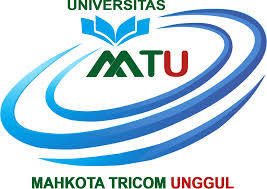Virtual Differentiated Instructions: Effects on English Language Proficiency of Grade 9 Students
DOI:
https://doi.org/10.55927/cjas.v1i2.8255Keywords:
Virtual Differentiated Instructions, Language Proficiency, Science High School, English Subject, Quasi-ExperimentalAbstract
The objective of this study is to determine the English language proficiency level and effects of virtual differentiated instruction to Grade 9 students from a Science high school in Olongapo City, Philippines. This study used a quasi-experimental (pretest-posttest) design to 143 purposively selected Grade 9 students. Then, the study used a paired t-test to analyze the data gathered. The study provided a substantial evidence that virtual differentiated instruction has significant effect on the English language proficiency of the students. Hence, the utilization of virtual differentiated instructions to improve the English proficiency of the respondents is effective and beneficial
Downloads
References
Arslan, A. (2020). A systematic review on flipped learning in teaching English as a foreign or second language. Journal of Language and Linguistic Studies, 16(2), 775-797. https://doi.org/10.17263/jlls.759300
Caratıquıt, K. & Caratıquıt, L. J. (2022). Uncovering teacher's situation amidst the pandemic: Teacher's coping mechanisms, initiatives, constraints, and challenges encountered. International Journal of Social Sciences and Education Research, 8(3), 288-298. https://doi.org/10.24289/ijsser.1103698
Deramos, G. et al. (2017). Influence of Profiles’ Variables in Basic Grammar Fluency among the Second Year, major in English Students in Gordon College. Gordon College, Olongapo City. Philippines
Entegro, E. (2022) Impact of virtual training on the Filipino secondary school teachers’ sense of efficacy in student engagement, instructional strategies, and classroom management. Open Journal of Social Sciences, 10, 110-126. https://doi.org/10.4236/jss.2022.103008.
Erarslan, A. (2021). English language teaching and learning during Covid-19: A global perspective on the first year. Journal of Educational Technology and Online Learning, 4(2), 349-367. https://doi.org/10.31681/jetol.907757
Esteron, M.A.F. (2021). Equity in online learning amidst pandemic in the Philippines. International Journal of English Literature and Social Sciences, 6(5), 139-151. https://doi.org/10.22161/ijels.65.23
Flaherty, S., & Hackler, R. (2010). Exploring the Effects of Differentiated Instruction and Cooperative Learning on the Intrinsic Motivational Behaviors of Elementary Reading Students. https://files.eric.ed.gov/fulltext/ED509195.pdf
Ford, K. (2019, February 7). Differentiated instruction for English language learners. Colorín Colorado. https://www.colorincolorado.org/article/differentiated-instruction-english-language-learners
Gülper G. (2021). The impact of virtual differentiated instruction practices on student and teacher perceptions in English language teaching: Virtual differentiated instruction practices. International Journal of Curriculum and Instruction, 13(3), 3146–3164. http://ijci.wcci-international.org/index.php/IJCI/article/view/817
Hussin, S.C., Kew, S. N., Tasir, Z., Wei, L. T., & Phuoc, T. T. (2022). A systematic review: Types of feedback provision in enhancing English language in online learning environment. IEEE International Conference on Computing (ICOCO), Kota Kinabalu, Malaysia, 31-37, https://doi.org/10.1109/ICOCO56118.2022.10031805.
Ledesma, S.K.G. & Toledo, C.D. (2022). Foreign language study in the “new normal.” Asia Pacific Higher Education Research Journal, 9(1), 1-13. https://po.pnuresearchportal.org/ejournal/index.php/apherj/article/view/1699
Lee, C., Yeung, A.S., & Ip, T. (2017). University English language learners' readiness to use computer technology for self-directed learning. System, 67, 99-110. https://doi.org/10.1016/j.system.2017.05.001
Maaliw, R. R. (2021). A personalized virtual learning environment using multiple modeling techniques. 2021 IEEE 12th Annual Ubiquitous Computing, Electronics & Mobile Communication Conference (UEMCON). https://doi.org/10.1109/uemcon53757.2021.9666645
Moser, K.M., Wei, T., & Brenner, D. (2021). Remote teaching during COVID-19: Implications from a national survey of language educators. System, 97, 102431. https://doi.org/10.1016/j.system.2020.102431
Ocampo, D.M. (2018). Reading comprehension level of Grade-11 senior high school students. Asia Pacific Journal of Multidisciplinary Research, 6(4), 1-10. https://eric.ed.gov/?id=ED613584
Online Education: Today’s Alternative Learning for Students. (2021, October 12). ChildHope Philippines. https://childhope.org.ph/alternative-learning-online-education/
Owens-Cunningham, A. (2021). Teacher perceptions on using differentiated instructional strategies in middle school [Doctoral dissertation, Walden University]. Walden University ProQuest Dissertations Publishing, 28548378. https://www.proquest.com/openview/a2cad40083aea06fdb2dd5251c672904/1?pq-origsite=gscholar&cbl=18750&diss=y
Quijano, L. J. T., & Legaspi, M. J. B. (2020). English proficiency and sequencing skills in narrative writing of public high school students. Philippine Social Science Journal, 3(3), 129-141. https://doi.org/10.52006/main.v3i3.249
Rafiq, K. R. M., Hashim, H., & Yunus, M. M. (2021). Sustaining Education with Mobile Learning for English for Specific Purposes (ESP): A Systematic Review (2012–2021). Sustainability, 13(17), 9768. https://doi.org/10.3390/su13179768
Sanchez, R.M.S., Garcia, G.S., & Tondo, J.E. (2020). Differentiated teaching strategies of selected topics in Biology. IOER International Multidisciplinary Research Journal, 2(3),155-163. https://doi.org/10.54476/iimrj346
Sapad, R.P., & Caballes, D.G. (2019). Learning styles-based differentiated instruction as tool towards academic achievement of Grade five pupils in Science and Health V. CiiT International Journal of Artificial Intelligent Systems and Machine Learning, 11(6), 111-119. http://www.ciitresearch.org/dl/index.php/aiml/article/view/AIML062019004.
Suwastini, N.K.A., Rinawati, N.K.A., Jayantini, I.G.A.S.R., & Dantes, G.R. (2021). Differentiated instruction for EFL classroom. Teaching English Linguistics Literature Usage Journal, 7(1), 14-41. https://doi.org/10.22202/tus.2021.v7i1.4719
Tupas, F.P., & Linas-Laguda, M. (2020). Blended learning – An approach in Philippine basic education curriculum in new normal: A review of current literature. Universal Journal of Educational Research, 8(11), 5505 - 5512. https://doi.org/10.13189/ujer.2020.081154.
Vargas-Parra, Marolly Andrea, Rodríguez-Orejuela, J. A., Herrera-Mosquera, L., Vargas-Parra, Marolly Andrea, Rodríguez-Orejuela, J. A., & Herrera-Mosquera, L. (2018). Promotion of Differentiated Instruction Through a Virtual Learning Environment. Folios, 47, 165–177. http://www.scielo.org.co/scielo.php?script=sci_arttext&pid=S0123-48702018000100165
Wenzlau, K. (2019). Teaching Practices: A Qualitative Case Study on the Differentiated Instructional Practices Used in Teaching in a Virtual High School Classroom [Doctoral dissertation, Grand Canyon University] https://www.proquest.com/openview/61b9332e116c07a4591dbe153d58fb46/1?pq-origsite=gscholar&cbl=18750&diss=y
Wong, K.M., & Moorhouse, B.L. (2021). Digital competence and online language teaching: Hong Kong language teacher practices in primary and secondary classrooms. System, 103, 102653. https://doi.org/10.1016/j.system.2021.102653
Yavuz, A. C. (2020). The effects of differentiated instruction on Turkish students’ L2 achievement, and student and teacher perceptions. Eurasian Journal of Applied Linguistics, 6(2), 313-335. https://doi.org/10.32601/ejal.776002
Zhou, J. (2020). Foreign-Language Teachers’ Needs to Achieve Better Results: The Role of Differentiated Instruction. University of Southern California ProQuest Dissertations Publishing. https://www.researchgate.net/publication/330157694_httpssearchproquestcomopenviewf300cc0b9d44995d648ddcb35d1ccd981pq-origsitegscholarcbl18750dissy
Downloads
Published
How to Cite
Issue
Section
License
Copyright (c) 2024 Mark Anthony C. Pasubillo, John Mark R. Asio

This work is licensed under a Creative Commons Attribution 4.0 International License.
















